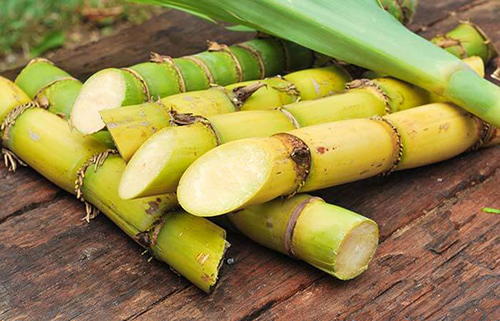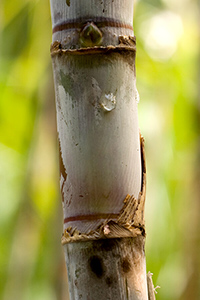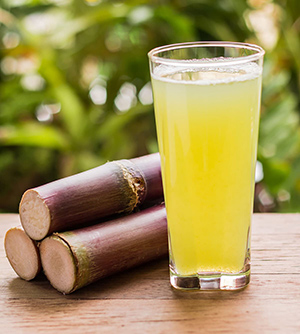Contents
Sugar cane is native to Southeast Asia. The Arabs spread its cultivation throughout the Mediterranean, and then the Spanish and Portuguese carried it to America in the 16th century. Cane sugar is obtained from this plant, as well as molasses, also called cane honey, which is the syrup residue after separating the sugar crystals from the cane juice.

Sugar Cane Scientific Facts
- French: Canne a sucre.
- Spanish: Cana de azucar
- Environment: It grows in subtropical regions of southern Europe and tropical areas of Central and South America, mainly in Cuba.
- Description: A plant of the Gramineae family, it is similar to the standard cane. Its aerial stems (canes) grow up to 4 m high, and its flesh is sweet and juicy.
- Parts of the plant used medicinally: The stem (cane).

Healing Properties and Indications

Sugar cane juice contains saccharose, a disaccharide sugar whose chemical formula is C12H22O11. It also includes many mineral salts and vitamins, most of which remain in the molasses. Brown sugar (non-refined sugar) contains molasses, giving it its color; hence, it contains mineral salts and vitamins. However, refined sugar (white sugar) is pure saccharose, lacking other nourishing substances.
Sugar cane juice and the decoction of its flesh have pectoral stimulating and refreshing properties. It is recommended for people with bronchial catarrh, chronic bronchitis, or asthma.
How to use Sugar Cane
- Fresh juice, prepared by grinding sugar canes.
- Decoction, with 250 g of peeled sugar cane per liter of water.
DISCLAIMER: All content on this website is presented solely for educational and informational objectives. Do not rely on the information provided as a replacement for advice, diagnosis, or treatment from a qualified medical expert. If you are pregnant, nursing, or have any preexisting medical concerns, talk to your doctor before using any herbal or natural medicines.
REFERENCES
- George D. Pamplona-Roger, M.D. “Encyclopedia of Medicinal Plants.” George D. Pamplona-Roger, M.D. Encyclopedia of Medicinal Plants. Ed. Francesc X. Gelabert. Vols. 1 San Fernando de Henares: Editorial Safeliz, 2000. 332. Print.
- Excellent Health Benefits Of Sugarcane Juice: https://pharmeasy.in/blog/15-excellent-health-benefits-of-sugarcane-juice/
- Cane Sugar: Are There Health Benefits?: https://www.webmd.com/diet/health-benefits-cane-sugar
- Surprising Health Benefits of Organic Sugar Cane: https://enjoybigcountry.com/blogs/blog/surprising-health-benefits-of-organic-sugar-cane-why-it-s-the-better-option
- Sugarcane health benefits you need to know: https://www.ndtv.com/health/sugarcane-health-benefits-this-sweet-snack-is-not-going-to-make-you-fat-and-offer-many-health-benefits-2526183
- Phytochemical profile of sugarcane and its health aspects: https://www.ncbi.nlm.nih.gov/pmc/articles/PMC4441162/
